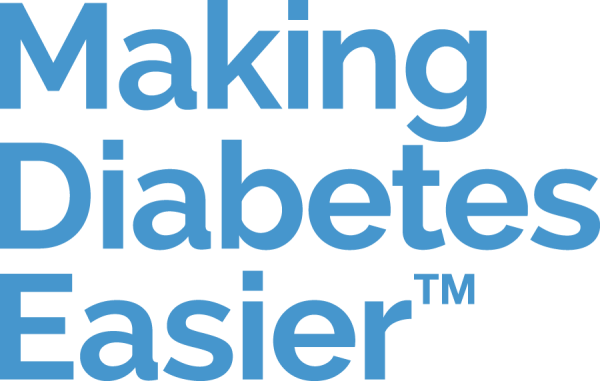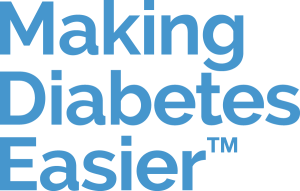Hypoglycaemia and diabetes

Hypoglycaemia is one of the potential diabetes-related complications
Hypoglycaemia occurs when your glycaemia (the level of glucose in the blood) is too low. It usually results from insulin injections and/or taking oral diabetes medication, which explains why people living with diabetes are at risk [1-6]. Dramatic drops in blood glucose can also occur after fasting, skipping meals or strenuous physical activity [2].
Hypoglycaemia is a problem for people living with both type 1 and type 2 diabetes, although people living with type 1 diabetes are more at risk of it as their treatment requires daily insulin injections [1,3,4]. With diabetes, the consequences of severe hypoglycaemia can be serious and even life-threatening. It is essential to know how to recognise the symptoms and how to react to treat them safely. [1-4].
The different types of hypoglycaemia
With hypoglycaemia, the blood glucose level is abnormally low - equal to or less than 3.9 mmol/l- and usually accompanied by one or more symptoms [2,4].
Hypoglycaemia has two broad levels of severity:
- moderate hypoglycaemia: when it can be self-managed,
- severe hypoglycaemia: when it requires the intervention of a third party [1,4].
Symptoms and body functions return to normal when the blood glucose level is brought back up [4].
Diabetes and hypoglycaemia: what are the symptoms?
Glucose acts as an energy source for the body. Without it, the body and brain can no longer function properly [1]. So when the blood glucose level drops too low, the body reacts and sounds the alarm, sending increasingly strong signals (Symptoms) [1,2,4].
The initial symptoms of hypoglycaemia, which can vary depending on age, individuals and the type of diabetes [1,6], are
- tachycardia /rapid heartbeat;
- palpitations;
- trembling, shaky, nervous;
- sweating;
- anxiety;
- hunger;
- feeling dizzy[4,6].
The symptoms can gradually worsen depending on the severity of the hypoglycaemia. They may include:
- concentration and sight disorders
- dizziness
- weakness
- extreme fatigue/feeling sleepy
- headaches
- confusion
- amnesia
- seizures,
- coma due to low blood glucose levels in the brain [4,6].
- unconsciousness
What to do when faced with hypoglycaemia?
Recognising the symptoms of low blood glucose levels allows you to act quickly and stabilise your glycaemia [5]. Aiming to prevent it is more important than knowing how to treat low blood glucose. Another important reason to prevent hypoglycaemic periods is that, when they occur repeatedly, they eventually alter the body’s counter-regulation system and become increasingly serious [1,3].
When the first symptoms of low blood glucose appear, or you feel unwell, test your blood glucose immediately to confirm your suspicions. Testing also makes it possible to know the degree of severity and act appropriately [5,6].
As soon as hypoglycaemia is observed, your first reflex should be to have a sugary drink or eat something sugary [1,6], then continue testing until your blood glucose level returns to normal [5]. Discuss the best hypo treatment for you with your diabetes care team.

Severe hypoglycaemia can cause unconsciousness.
The best way to avoid hypoglycaemic events is to test your blood glucose frequently.
Sources
- Ahmed Iqbal, Simon Heller. Managing hypoglycaemia. Best Practice & Research Clinical Endocrinology & Metabolism, Volume 30, Issue 3, June 2016, Pages 413-430.
- Richard Silbert, Alejandro Salcido-Montenegro, Rene Rodriguez-Gutierrez, Abdulrahman Katabi, Rozalina G McCoy. Hypoglycemia among Patients with Type 2 Diabetes: Epidemiology, Risk Factors, and Prevention Strategies. Curr Diab Rep . 2018 Jun 21;18(8):53.
- Michael R. Rickels. Hypoglycemia‐associated autonomic failure, counterregulatory responses, and therapeutic options in type 1 diabetes. Ann N Y Acad Sci. 2019 October ; 1454(1): 68–79.
- Janusz Gumprecht, Katarzyna Nabrdalik. Hypoglycemia in patients with insulin-treated diabetes. POLSKIE ARCHIWUM MEDYCYNY WEWNĘTRZNEJ 2016; 126 (11): 870-878.
- Wendy Klein-Schwartz, Gina L Stassinos, Geoffrey K Isbister. Treatment of sulfonylurea and insulin overdose. Br J Clin Pharmacol. 2016 Mar;81(3):496-504. Institute for Quality and Efficiency in Health Care (IQWiG), Cologne, Germany.
- Institute for Quality and Efficiency in Health Care (IQWiG), Cologne, Germany. Hyperglycemia and hypoglycemia in type 2 diabetes. May 29, 2007; Last Update: January 11, 2018 Institute for Quality and Efficiency in Health Care (IQWiG); 2006.



